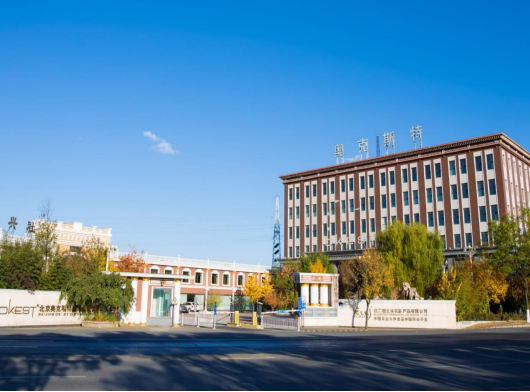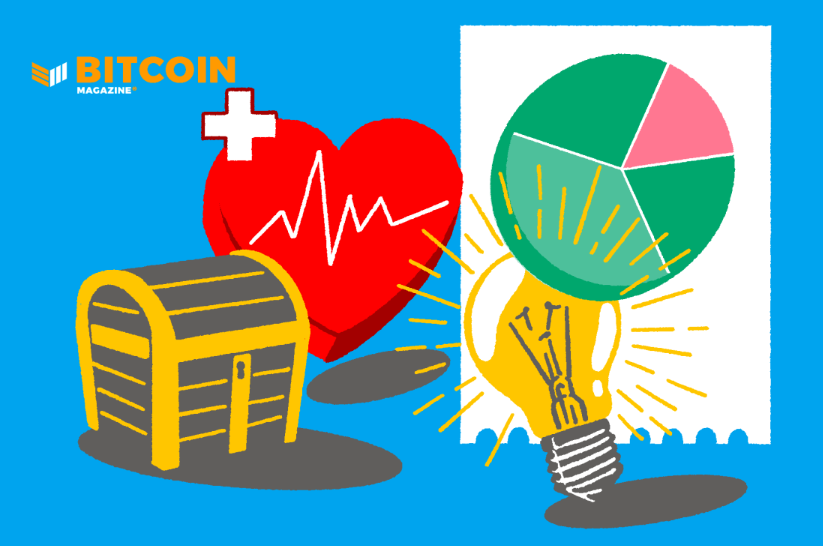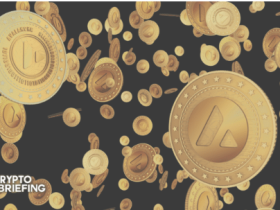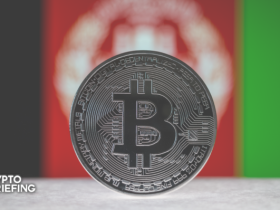It’s difficult not to take a “Michael Saylor breath” and start a four-hour chat about how there is no second best when a nocoiner asks me about Bitcoin.
Over time, I’ve honed my Bitcoin elevator speech, but it’s still challenging to convey the importance of a trustworthy global financial ledger in only 30 seconds. You need to accomplish some “proof of work” before you can enjoy the full Bitcoin “rabbit hole” experience. In this post, I’ll try to explain why the network’s incentives are so well-designed at every level.
This is the first really level playing field for humanity. A decentralized public ledger that, under normal circumstances, any participant in the market can view, verify, and change. Playing properly with electricity, rather than through coercion and violence, benefits everyone in the long term, from individuals to small enterprises to grid operators and energy companies to nation states. Though I have high hopes for Bitcoin’s potential to give individuals more control over their own destinies, it looks like we’re reaching a tipping point where institutions begin hoarding sats. Like TCP/IP before it, Bitcoin will eventually achieve a critical mass where every organization and government adopts the protocol. The Bitcoin rabbit hole is a fascinating way to learn about many different fields, including cryptography, blockchain technology, energy, finance, philosophy, physics, history, game theory, economics, and computer science. The Bitcoin gatherings I’ve been to in Massachusetts have been full of folks who, before attending, would never have bothered to learn anything about the cryptocurrency, but now find themselves really interested in learning about it. Spending hundreds or perhaps thousands of hours studying Bitcoin is necessary. No one has “discovered the bottom of the Bitcoin rabbit hole,” therefore you are just getting started. Once you begin to understand the full scope of Bitcoin’s potential impact, it’s hard to stop thinking about it as a secret key to success. A decentralized ledger that is being adopted by the masses and is apolitical, censorship-resistant, and truly scarce. The fact that the Byzantine generals problem was resolved by an unknown individual or group using the alias “Satoshi Nakamoto” is a huge relief.
Individuals
Because people are motivated by their own self-interest, socialism fails. I imagine a paradise to be a place where everyone works together and assists one another. One of the greatest feelings in the world, in my opinion, is giving of one’s own free will. Forced generosity, done so as a means of avoiding physical harm, rarely leaves the giver feeling generous. Restricting people’s access to the results of their labor has historically resulted in terrible outcomes. The idea that people should work for the “greater good” is counterproductive. The events that took place in China from 1959 to 1961 are a good illustration of this. During Mao Zedong’s rule, the country suffered through the Great Famine. This is but one consequence of governments prohibiting their people from working on projects they value. It destroys the foundation on which productive people can rely to engage in work that matters to them. Despite socialist hopes to the contrary, the world is not a utopia. It’s one thing to oppose monopolies because they impede the free flow of commerce. To condemn financial success is something else entirely. Making a profit is essential for people to invest their time and energy into creating something of worth. Unless, of course, they are coerced into it by actual physical harm. Someone working for profit is much more motivated than someone working because they are being forced to do so, so the greater the use of coercion, the lower the value creation.[rb_related title=”More Read” style=”light” total=”4″]
The monopoly central banks have on fiat currency is one monopolistic practice that is holding back the modern world. Free markets get corrupted when interest rates and money supply are controlled by a central authority, which then creates fiat currency without bearing any opportunity cost. As a result, individuals are pushed further out on the risk curve and price signals get garbled.
Even though the risks of investing in bitcoin decrease with each passing day, I give credit where credit is due to the people who saw its potential far before it became fashionable. People weren’t able to acquire bitcoin using fiat currency before the advent of exchanges like Mt. Gox. What made Bitcoin unique was that its miners were using electricity and computers to create it. An alternative economic model that does not rely on expanding debt. There were many failed efforts before Bitcoin, but many of their ideas were included into Nakamoto’s white paper. As long as the Bitcoin network keeps adding blocks of transactions around every 10 minutes, it stands to reason that more and more people will join in order to safeguard their purchasing power. As more people become aware of the effects of debasement on their purchasing power, they will undoubtedly look for alternatives to protect themselves. This is why I decided to make my first Bitcoin purchase in January of this year. A friend of mine told me about this novel currency that has seen significant growth since its introduction. I learned that money is really just a ledger by seeing the documentary “Banking On Bitcoin,” which I still highly recommend. Not going far enough down the rabbit hole at the time was a big regret of mine. The first two years of my crypto experience were filled with excitement as I watched my exchange balances increase by a factor of ten thanks to bitcoin and alternative cryptocurrencies. However, I was devastated when the bull market eventually ended and my profits were wiped out. I was preoccupied with the dollar value of Bitcoin, as are most people who are drawn to it in the first place. By doing so, I ignored bitcoin’s primary selling point: its independence from third-party verification and custody. While the loss of my hard-earned fiat currency was painful, the lessons I learned from it were priceless. When something has rapid growth, such as a parabolic spike, it is likely to experience a similarly rapid decline. I learned the hard way why it’s preferable to have a low time-preference, but as they say, pain is the greatest teacher. For me personally, this experience reinforced the idea that Bitcoin is where my attention should be placed, rather than crypto. I stayed mildly intrigued by Bitcoin until the year 2020, when I dove headfirst into the blockchain technology behind it. A mental alarm went off when I received a stimulus check in the mail for doing nothing. While the promise of free money is always welcome, the United States government’s decision to distribute cash to its citizens was bound to have unintended repercussions. At the time, I didn’t have a good grasp on the reasons. My inability to pinpoint the problem drove me to investigate Bitcoin, which ultimately led me to read up on Austrian economics and the inner workings of money. Learning about Bretton Woods, 1971, and the reasons central banks are competing to debase their currency was both irritating and educational.
I was astounded to find out that the Federal Reserve stores the vast majority of its currency on a computer (in a SQL database). They just need to push a few keys on a computer and out pops a trillion. The free market’s ability to inform market participants about the cost of capital has been hampered by allowing a group of 12 unelected officials to centrally plan the cost of borrowing money. Fiat is Latin for “by decree,” thus it seems to reason that central bankers will go to great lengths to maintain their monopoly on the creation and distribution of currency. The Federal Reserve insists it is politically neutral, but as debt levels rise to levels only seen during war, central bankers face political pressure to devalue the currency. Defaulting on debt is the alternative option, but it’s never politically feasible. Positively, as a result of the stress caused by witnessing their purchasing power rapidly diminish in inflationary conditions, more individuals are becoming aware of the situation. It’s okay to look out for number one. It’s what gets people out of bed in the morning, so they can reap the rewards of their efforts in the evening. Bitcoin maximizes this, but Keynesian economic models of ever-expanding credit steal the fruits of people’s labor. No one can predict the future, but it stands to reason that in the long run, more individuals will store their “fruits” in the more difficult currency.
Local Companies
At the time of writing, the total value of Visa and Mastercard on the stock market was around $775 billion. In general, they take about 3% of merchants’ revenue as a fee for their services. This has a negative impact on retailers’ bottom lines and/or is passed on to customers. Despite the convenience of using a credit card, many merchants and customers would rather not pay the costs associated with doing business that way. Going cash-only for final settlement is an option, but it could mean losing customers who are younger and less likely to carry cash. Companies can save money on transaction costs and get final settlement transactions in a manner analogous to cash by accepting bitcoin. No longer must 90 days pass before a chargeback is considered resolved. Bitcoin will significantly alter the status quo of many of the current financial pillars. The Western world’s established financial railways may make it difficult for some to understand the significance of this. Those living in less developed nations, on the other hand, may attest to the frustration caused by pushy salespeople looking to make a profit at any cost. Bitcoin can help small businesses wean themselves off unnecessary intermediaries, but the process will take time. Bitcoin is not only a fantastic payment method, but also a powerful promotional instrument. Whenever I come across a small shop in my area that accepts bitcoin, I would gladly give them some satoshis. Tahinis is a fantastic case of a local firm that has used bitcoin to increase its visibility. If I ever find myself in Canada, I hope I can use bitcoin to buy shawarma from Tahinis. When two people share the common experience of having taken the orange pill and accepting Bitcoin as payment, a deep and lasting connection is formed between them.[rb_related title=”More Read” style=”light” total=”4″]
Grid Operators and Energy Providers
Companies in the energy sector and those responsible for managing the nation’s grid would benefit greatly from adopting a bitcoin strategy as well. The grid may have two buyers, one who prefers to use energy during the day and another who would be happy to do so at all hours of the day and night. Bitcoin miners are able to profit from otherwise wasted energy. The initial investment is there because of the expertise required to manage and update the ASIC. As a result, there will be more opportunities for skilled workers. When more skilled people are employed, more value is created, and the grid benefits. Bitcoin’s ability to stabilize grids and make the capital put up to create green energy infrastructure much less hazardous belies the widespread panic about its purported energy use. Prior to the invention of Bitcoin, it would have been extremely challenging to raise the capital necessary to construct a large hydro plant in a rural location. The lack of potential customers for the generated electricity would discourage investors from financing a power plant. Investors may rest easy knowing there will always be a buyer for their Bitcoin power. Although I anticipate a moment when miners hold all their Bitcoin for themselves, they are always free to trade their coins in for fiat currency. Bitcoin markets operate around the clock, unlike more conventional exchanges. The most efficient miners will be able to hold and accumulate bitcoin while fiat currency loses value over time, while the least efficient miners will be forced to sell their bitcoin for money that is being debased on a continuous basis by the money printers. Long term, the most successful businesses will prosper, while less effective ones will either have to change with the times or go out of business entirely. This is the result of a functioning free market.
Knowing what I know now about how grids function, it’s clear that bitcoin may usher in a future of cheap, abundant energy where prices aren’t skyrocketing due to the incompetence of central planners and the inflationary effects of their reckless money printing. To cover up the calamity that central banks have caused, they have built a green energy and environmental, social, and governance (ESG) narrative that is antihuman. Some environmental extremists argue that rising CO2 levels will eventually suffocate humanity, but a look at the data presented in Alex Epstein’s “Fossil Future” reveals that increased reliance on fossil fuels is really warranted. All other aspects of civilization rest on the foundation of energy. Things will quickly deteriorate if there is no access to affordable and reliable energy. Take a look at Sri Lanka, a country that had had a stellar ESG rating but is now struggling economically. Irresponsible monetary policy is the root cause of every case of hyperinflation in history. Calling the practice of debasing currencies “quantitative easing” doesn’t change the fact that it causes more money to chase the same amount of goods. People make fun of Bitcoiners, calling us crazy for talking about “magic internet money,” but the fact is, we just want everyone else to swallow the orange pill so we can all escape the oppression of central planners. Bitcoin maximalists get a poor record for being rude and unfriendly online because they expose scammers and other bad actors, but in my experience, Bitcoiners are consistently some of the most sincere, friendly, and enlightened people I’ve ever met. I’ve seen firsthand how Bitcoiners are eager to welcome new users into the network, as we all agree that Bitcoin is the best path toward a pro-human future in which we have plenty of food, energy, and freedom of choice.
One of the highest forms of selflessness is educating others that bitcoin is the life raft. One kind of currency is bound to triumph over others in the long run, as history shows that free markets always do. Before bitcoin, gold was used as money, but as trade sped up, fiat currency was developed. As more people and businesses discover that bitcoin can’t be debased by a single organization, I expect fiat to continue rapidly losing its purchasing value now that we have bitcoin.
Nation-States
One may say that this is a sword with two edges. As much as possible, I hope that people will start using bitcoin before governments start stockpiling. I have faith that the countries that do adopt bitcoin will use the rise in its fiat price to create a more prosperous society for its citizens. There are now two nations that recognize bitcoin as legal money. Out of 167 countries, the World Population Review places the Central African Republic at number 165 and El Salvador at number 98 on its prosperity index. Both of these countries were early adopters of bitcoin despite the fact that neither is among the top half of most developed. Since the most developed nations stand to lose the most if they can’t “decree” what happens with their money, I expect this trend to continue. El Salvador’s economy had been dollarized for some time before bitcoin was introduced. They’ve recently changed their laws to recognize both USD and Bitcoin as currency. CFA francs were the legal tender of the Central African Republic. It’s promising to see countries who are dependent on the policies of foreign central banks accept bitcoin as a means of breaking free of this monopoly, as stated on Wikipedia. If the value of a country’s currency balloons to unsustainable levels, international trade would become impossible, and the richest countries will be compelled to adopt bitcoin as a means of exchange. These powerful states will go to war to defend their hegemony over fiat currencies. Bitcoin will be most attractive as a means of protecting national currencies for developing countries that lack full control over their own currencies.
If you’re a country that needs to spend money but doesn’t have the ability to print more, you’ll be more likely to put your money into a currency that is actually scarce than one that can print more money. Though El Salvador may have lost money on the spot market for bitcoin, the country has more than made up for it with the influx of tourists. If I could use bitcoin to buy things in El Salvador, I would love to go there. I expect the large influx of tourists to El Salvador to continue as more Bitcoiners, like myself, start planning visits there to spend this new form of currency. No country can afford to ignore the impact bitcoin can have on its local economy, thus more and more of them are adopting it as legal cash in order to lure tourists and stimulate their economies.
Conclusion
This situation has the potential to become chaotic. The wealthy countries, the World Bank, and the IMF won’t just give up and say, “Well, we controlled fiat currency for a while, and that was nice.” Look at the United States, which just enacted the Inflation Reduction Act and will be employing and equipping 87,000 more Internal Revenue Service agents. The U.S. government is preparing to create money out of thin air to pay its citizens to do this. It’s ironic that we got a country because we sought freedom from oppressive taxation without a voice in government, and now that government is increasing its tax burden on the people.
Those in authority will stop at nothing to defend their interests and slow bitcoin’s spread. There is a limit to what can be accomplished with top-down management. There is no such thing as a selfless person, organization, or country. When it’s you who has to cope with the parasite’s negative effects, you quickly realize how much of a nuisance they can be. Over a sufficiently enough period of time, bitcoin seems destined to bleed these parasites dry as they lash out and try to impose top-down regulations around the world. There is a limit to how long the truth can remain buried before it is revealed. Bitcoin has the potential to improve centralized energy pricing, banking, and credit systems as well as extensive state monitoring. Due to the impossibility of stealing bitcoins from someone whose private keys are stored in their head, this technology can help reduce the incentive for violence. If they are unable to extract the private keys from the victim’s brain through torture, then the victim’s death is equivalent to a donation to the network as the victim’s bitcoins will never be spent.
It would be more beneficial for strong entities to work with these sovereign individuals who have adopted bitcoin and are using excellent safety practices than to eliminate them. In order to keep things peaceful, I think more individuals ought to take the orange pill and be taught how to administer a node. To conduct financial transactions, people, businesses, and governments may soon find they don’t require banks.
I feel terrible whenever the United States is in turmoil. In his book “The Changing World Order,” Ray Dalio presents a number of insightful and frightening observations about the current state of the United States. The United States is currently a failing empire, whereas China is rising. Dalio’s chart explaining the significance of being an international reserve currency was very useful to me.
When the Dutch lost their status as a reserve currency, the British gave it to the Americans. There are signs that China is preparing to unseat the U.S. dollar as the world’s reserve currency. The decline of the US dollar as a world currency of last resort shows no signs of abating. The United States would fare better with bitcoin as a neutral world reserve currency than the Chinese yuan, despite the fact that losing reserve status is never a good thing. Having a CBDC issued by the central bank as the reserve currency would provide central planners the ultimate tool to undermine value creation in the free market. China is a country full of hardworking people with a long and illustrious history. But their totalitarian state of monitoring and CBDCs have no place in a democratic society. People need to stand up and scream, “Enough!” by choosing not to participate.[rb_related title=”More Read” style=”light” total=”4″]
This world, in which the government may simply cut off its inhabitants’ access to their own money, is not fit for future generations. It’s been a crazy two years. Donations to a Canadian truckers’ peaceful protest are leading to the freezing of some donors’ bank accounts. Farmers are under attack all around the world in an effort to satisfy antihuman ESG objectives that would wreck countries like Sri Lanka if they aren’t stopped. The greatest nation on Earth is going after its own citizens by depreciating the dollar to record lows, increasing the number of IRS officers, and increasing tax rates despite the economic downturn. All of this is in jeopardy if people don’t wake up and use bitcoin to leave these corrupt regimes peacefully. We need only install Bitcoin Core on a low-powered computer or a Raspberry Pi. You may now confirm that only 21 million bitcoins will ever exist and conduct peer-to-peer transactions with anyone. Thinking about the independence, prosperity, and plenty that bitcoin can bring to the world gives me a pleasant, fuzzy feeling in my heart. When the general public grasps this, they’ll appreciate how “Fix the money; Fix the world” encapsulates the spirit of Bitcoin.











Leave a Reply